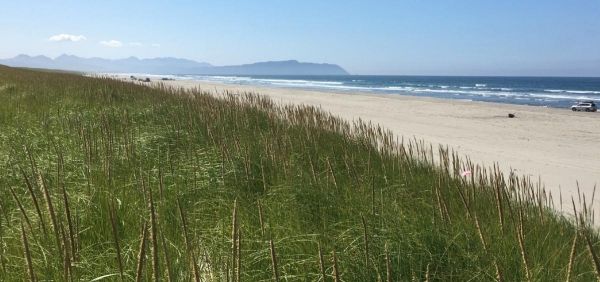Two species of sand-stabilizing beachgrasses introduced to the Pacific Northwest starting in the early 1900s are hybridizing, raising new questions about impacts to the coastal ecosystems the non-native plants have been engineering for more than a century. Researchers in the Oregon State University College of Science identified the hybrid in a paper published in Ecosphere.
In addition to their ecological implications, the findings are important in the context of coastal vulnerability to the effects of climate change, including increasing danger from flooding and erosion from storms and rising water.
An OSU collaboration led by integrative biology Ph.D. candidate Rebecca Mostow and professor Sally Hacker employed multiple analytical techniques to show that the beachgrasses that dominate the Northwest’s dunes, Ammophila arenaria and A. breviligulata, have hybridized.
Continue reading at Oregon State University
Image via Oregon State University


